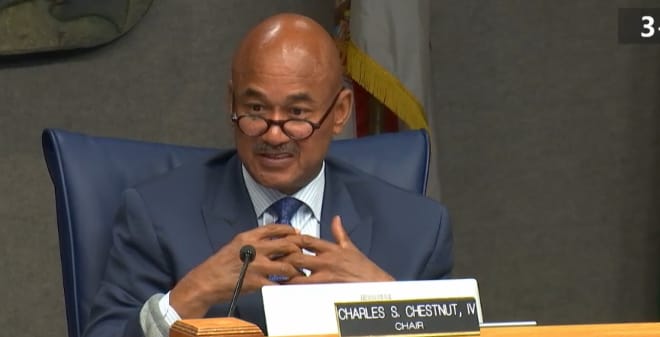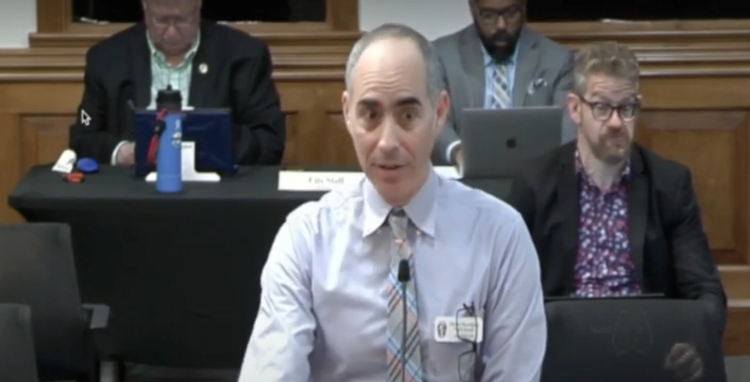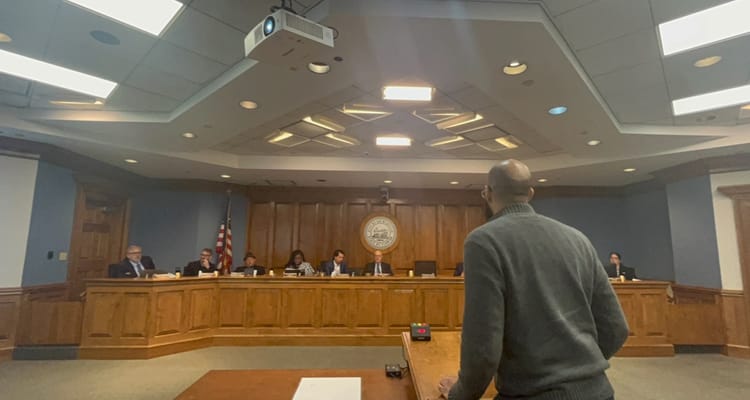Billing Debates and Legal Strategies Discussed as GRU Board Prepares to Demission
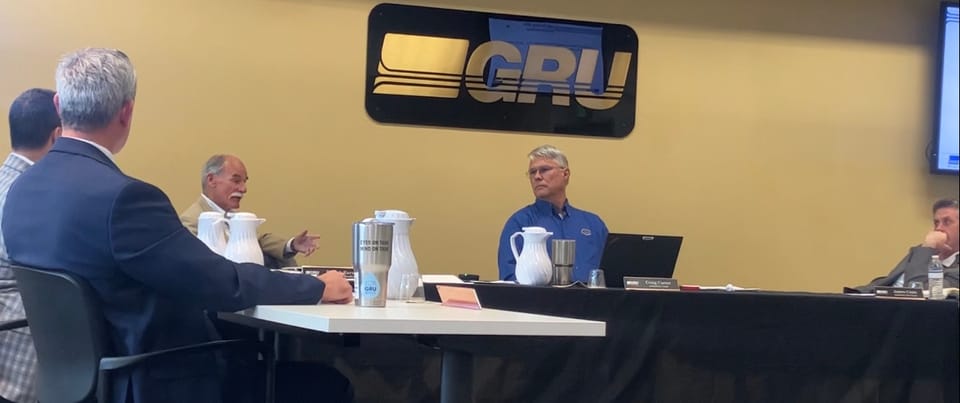
The Gainesville Regional Utilities (GRU) Authority met yesterday for the first time since their recent resignation due to lawsuits that disputed their appointments.
Chair Craig Carter acknowledged the situation, saying that all members are welcome to reapply. He spoke for the board, saying they would continue working until they were told not to.
During public comment on non-agenda items, Kim Popejoy presented an argument that GRU’s high rates are a matter of perception, showing a chart that compares a Duke Energy bill and a GRU bill.
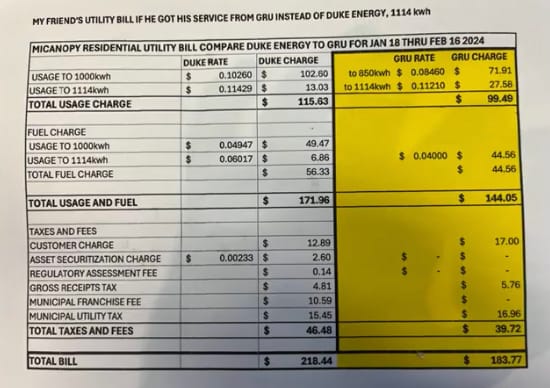
“This gentleman… intelligent human being, has been under the belief that GRU had been gouging him for years. You can fix this by breaking up GRU’s billing format. He gets billed for his electricity from Duke. Then he gets a $50 bill from Micanopy for his water and garbage. He then gets a $50-per-month bill from Davis Gas. But GRU charges everybody on the same bill and the same cycle; therefore, everybody looks at the bottom line and goes, ‘Gosh, my GRU bills are high…’ Break up the billing.”
During attorney comments, an associate of Folds Walker LLC, which represents the board, Kiersten N. Ballou, said the firm had been working on drafts of additional memoranda that would further establish the authority as a separate legal entity or governmental unit.
This comes after last week, when the Gainesville city commission voted unanimously to have city attorney Daniel Nee create an ordinance that would begin the process of creating a ballot measure which would allow Gainesville citizens to vote on whether to sustain or remove Article 7 of the city charter, which was put in place by Fl House Bill 1645.
Regarding the first item, the board voted unanimously to authorize the issuance of up to $45,000,000 in Utilities System Revenue Bonds, 2024 Series A, to refund the outstanding Utilities System Revenue Bonds, 2014 Series A.
The authority went on to revise their procurement policy, voting unanimously to remove donations of property as well as the accession of preferences for veterans and small businesses. They did choose to consider veteran status in grant solicitation processes in the event of a tie between two applicants.
Former city commission candidate Jim Konish called the provision “watered down,” going on to press the importance of preferences for local businesses and veterans for grant money to stay in the community.
When discussing the board’s legal representation, members voted unanimously to stick with their interim law firm, Folds Walker LLC. The board based their decision on a plausible conflict of interest, citing the city's firm recommendation, GrayRobbinson's affiliation with the City of Gainesville.
During public comment, Konish gave his take on the suggested conflict of interest.
“There are three things here. We have the City of Gainesville and the GRU Authority. They are sister units of the city government. Then we have GRU, which is a signal business enterprise that has been taken by the [state] legislature away from the City of Gainesville because they looted and plundered it. It has been turned over to this authority. Any attorney working for the City of Gainesville and answering to the city commission is disqualified from representing either GRU or the authority under these circumstances. I could call up and file bar complaints, and Nee would be under investigation tomorrow. I’m not gonna do it.
Chair Carter recommended Konish file a bar complaint; however, Konish reiterated that he would not.
During member comment, Robert Karow held the board and himself accountable, comparing the citizens of Gainesville to a six-year-old child hearing their separated parents fighting over a property settlement.
“We’re arguing with the city over whether or not the city ought to get millions of dollars and how much they actually get [when] we don’t even have a clue. I’ve asked; we don’t know ultimately or specifically what they get from us. We’re fighting about all those things; meanwhile, we’ve never done anything about the rates [or] the debt... When I got on board here I didn't know anything at all about GRU.”
Member Karow went on to jokingly recall how, when he first heard the term “debt defeasance,” he had to look up what it meant. Chair Carter admitted he had done the same. Karow said he questioned why the term was referred to as “debt defeasance” instead of “debt reduction.”
“Why don’t they call it a debt reduction plan? Months into the process... The light bulb went on; it’s not called debt reduction because we’re not reducing debt. I’m not so sure the way we’re trying to do it is going to get us there.”


